Today you and I will be interested in the requirements for a candidate for the presidency of the Russian Federation. In addition, the procedure for electing the country's leader will also have to be studied. After all, this process is important for all citizens. Only it has a huge number of rules and principles that must be observed. Moreover, violations can lead to invalid results. Therefore, it is worth paying attention not only to the requirements for presidential candidates, but also to the rules of the process themselves. Fortunately, everything is not as difficult as it seems at first glance. The election process itself is prescribed in the Federal Law “On the Election of the President of the Russian Federation”. Let's consider the main important points that may concern our current process.
Age category
To begin with, it is worth noting that, according to modern legislation, there is a so-called age limit for a candidate. What it is? The so-called age limit for a potential leader of the country. An important point that must be observed. Otherwise, no one will allow you to run for president.
What is the requirement here? The thing is that some people believe that you can become president at the age of 18. But federal law says otherwise. After all, the age limit is set at 35 years. This means that a candidate for the position of President of the Russian Federation must be no younger than the specified age. That is, from 35 years and older. This is precisely the principle that applies. But that is not all.
“Master of Intrigue”: Will Putin Run for President Again?
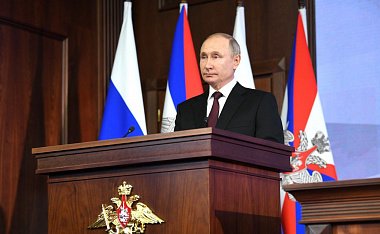
On March 24, the State Duma, in the third reading, adopted a law giving the current Russian President Vladimir Putin the right to again participate in the elections of the head of state.
However, at the moment it is impossible to predict whether Putin will run in 2024, says Alexei Chesnakov, head of the scientific council of the Center for Political Conjuncture. “Putin is a master of intrigue,” noted a political scientist for Ekho Moskvy radio, adding that the president needs this in order to “keep everyone in suspense and stabilize the political situation.”
Chesnakov also commented on rumors that Putin will not head the federal list of United Russia in the upcoming State Duma elections. According to him, any “leaks and stuffing” of this nature benefit both United Russia and the president. The political scientist noted that, according to recent sociological studies, 53% of Russians are potentially ready to vote for United Russia, that is, in the new composition of the State Duma, the party has the opportunity to form a constitutional majority.
The host of the broadcast, Alexei Solomin, also asked why Putin did not announce which COVID-19 vaccine he was vaccinated with. According to the political scientist, this is explained by his reluctance to undermine confidence in the other two drugs, since he is promoting three simultaneously - Sputnik V (aka Gam-Covid-Vac), EpiVacCorona and CoviVac from different manufacturers. In addition, the head of state, creating intrigue regarding his vaccination, forces journalists to support the information field he needs.
The head of the scientific council of the Center for Current Political Affairs also praised opposition politicians on Echo of Moscow. According to him, Alexei Navalny’s mistake was that he was involved in both politics and business at the same time. After Navalny’s imprisonment, the opposition was left with neither a bright leader nor sufficient resources to form a relatively large-scale protest action, the political scientist noted.
“Politics is a struggle between the strong and the weak. The strong dominate, the weak submit,” Chesnakov emphasized. He also added that Navalny’s attempt to break the system built by Putin could not initially be successful, since the president is a strong leader who sets the rules of the game.
Commenting on the critical statement of American President Joe Biden addressed to Putin, Chesnakov noted that this was a conscious signal that Putin is a less acceptable partner for Biden than many others, and the ultimate goal of the American government is not the Russian Federation, but China, which represents The US is a real danger, especially in cooperation with Russia.
Settlement
For example, we should not forget that there is a so-called residency requirement. This is something like another restriction for citizens who want to run for president. And it applies to the length of residence of a citizen. Quite a serious point that can cause a lot of inconvenience for some candidates. Although in practice, incidents with settled life almost never arise.
Why? Because even without that, all potential candidates permanently reside in the Russian Federation. And for a long time. But if you look at the restrictions, the residency requirement indicates that you need to live in Russia for at least 10 years. And continuously. Moving from one locality in the country to another is allowed. Therefore, pay attention to this feature. If you have lived in Russia for less than ten years, you will not have any rights to participate as a candidate. Only as a voter can you vote for one candidate or another.
Citizenship
But that's not all. What requirements are put forward for a candidate for the presidency of the Russian Federation, in addition to the age limit and residence? After all, there can’t be so few features! The position of head of state is extremely responsible, which means that potential leaders are selected with special attention.
Indeed, the demands do not end there. The next point that you will have to consider if you want to run for president is your citizenship. According to modern laws, only a citizen of the Russian Federation can be a candidate for the post of head of state. Foreign citizens do not have this opportunity. And stateless persons as well. In other words, only a Russian has the right to participate in elections as a direct participant. In principle, an obvious fact, which, as a rule, is not worth mentioning at all - everything is already clear.
What other requirements may be imposed on candidates for the presidency of the Russian Federation?
In addition to the requirements listed above for candidates, people who decide to run for the main leadership post of the country and become the President of the Russian Federation, it should be taken into account that there are several more important points that can also be called requirements, but not according to the Constitution.
For example, the Central Election Commission stated that candidates running for president of the Russian Federation, after the official start of the election campaign on December 18, are required to hold meetings of their supporters within no more than 20 days, and then submit the minutes of the meetings jointly to the Central Election Commission with other documents. Moreover, candidates nominated by the party have 25 days to do this. Only after this requirement is met, of course, if all other conditions are met, candidates for the presidency of the Russian Federation will be able to obtain permission to open an electoral account, and then begin collecting signatures.
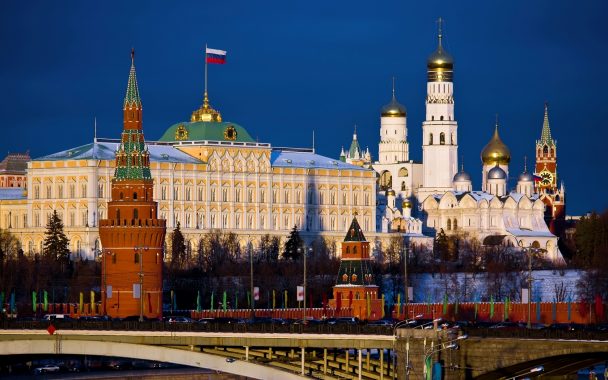
Another condition that must be met in order to become officially registered candidates for the presidency of the Russian Federation is the collection of at least 300 thousand signatures in order for a self-nominated candidate to get on the ballot. For party candidates, the requirements for the number of signatures are softer - only 100 thousand. As the head of the Central Election Commission Ella Pamfilova noted, the requirements for candidates for the post of President of Russia today are quite light.
The Central Election Commission also obliges presidential candidates to fulfill a number of other requirements. In particular, for registration as an official contender, they provided the first financial report, a notice of the absence of deposits abroad and signature sheets with signatures of voters, if necessary. In addition, according to the requirements, a candidate for the presidency of the Russian Federation, in order to become an officially registered candidate, will have to provide a statement directly about his consent to run, information about the amount and sources of income of both the candidate himself and his spouse for six years, and information about property.
Criminal record
Of course, attention is also paid to the relationship between the potential leader of the country and the law. Moreover, this moment can in some cases cause a lot of problems for candidates. Why?
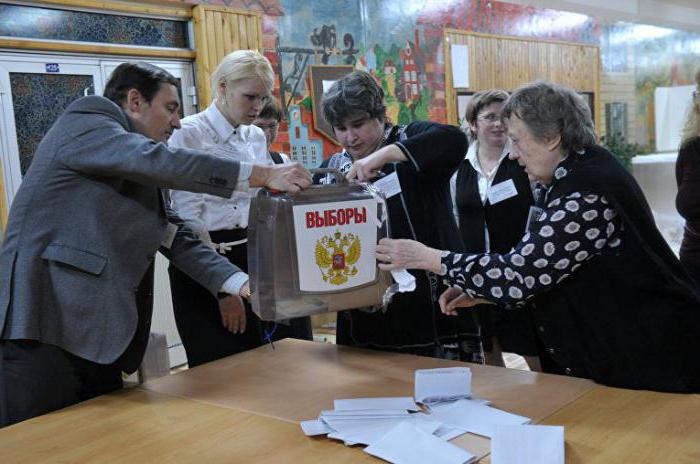
This is because the head of state must be legally competent and without a criminal record. And any. It is also prohibited for those serving sentences in prison to run for the presidency. Or someone who was deprived by a court decision of the opportunity to occupy leadership and government positions.
Please note - a citizen must have a military ID (for men). It is clear that by the age of 35 a potential candidate will have completed military service. But only if he once tried to evade his military duty, as a result of which a criminal case was opened against him, can he not run for office at all. Such a person does not have the opportunity to participate in elections as a candidate. In principle, there are no more restrictions. Just solid rules. The requirements for a candidate for the presidency of the Russian Federation are not that great. They are usually easy to follow. What can be said directly about the elections? How are they carried out? After all, this moment is extremely important. And it also includes some conditions and rules regarding the behavior of candidates before the elections. What you should pay attention to?
The President from the point of view of Russian legislation
The rights, powers and duties of the President of the Russian Federation are secured, first of all, in the provisions of Chapter 4 of the Constitution of the Russian Federation. The main document also sets out the main requirements for candidates for the position of President. In addition, the mechanism in accordance with which elections are held is indicated - a secret popular vote of capable citizens. However, the Constitution regulates only the most basic requirements for candidates for President of the Russian Federation, which include:
Election dates
There are a lot of important moments. For example, it’s worth finding out how long the president is elected in Russia. It is important. And all because it depends on when exactly the next elections will be held.
According to modern laws, the head of state in the Russian Federation is elected for a term of 6 years (previously for 4 years). Then you will have to repeat the procedure again. Only each candidate has the opportunity to be elected to a second term. Thus, the maximum duration of tenure as head of state is 12 years. You can no longer run for president for the 3rd and subsequent terms. Only with a break of at least 1 period of “reign”.
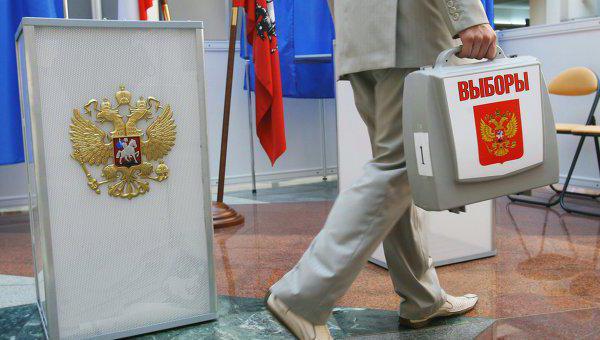
Thus, in Russia there is a so-called periodic change of head of state. This is a mandatory process. But the most important thing is that after two continuous terms and one period without leading the state, you can run for president again. So everything here is extremely simple. There are no problems.
At what age can you become president of the Russian Federation?
Candidates for such a high position are subject to a number of requirements that must be complied with. After all, the president of the country, as is known, is the guarantor of the Constitution and the commander-in-chief, representing Russia both inside and outside of it. One of the main requirements is the age of the candidate - he must be at least 35 years old.
But this is not the only condition; there are a number of others:
- Russian citizenship and residence in the country for at least 10 years;
- no criminal record;
- knowledge of at least one European language;
- presence of an election program, etc.
It is also important to remember that the same citizen can be elected to the post of head of state for no more than 2 consecutive terms.
- Author: Maria Sukhorukikh
Rate this article:
- 5
- 4
- 3
- 2
- 1
(0 votes, average: 0 out of 5)
Share with your friends!
Nomination procedure
By the way, there are some rules for nominating certain candidates to participate in elections. They are also spelled out in federal law. Usually they do not cause any problems; in practice, in Russia, mainly one of the options occurs.
Nomination of candidates may come from any political party. This is the layout that is most often found in Russia. But please note - a political party must have the right to nominate candidates, as well as to participate in elections. If these rules are met, the association will be able to nominate its member for the post of head of state. And there will be no problems with this.
But self-nomination of a presidential candidate also takes place. Not the most common occurrence. In Russia it is practically not used, although it exists “on paper”. After all, problems will arise when we have to conduct an election campaign. In the case of political parties, everything is much simpler - you get support from it. But self-promotion will require huge costs. In addition, in Russia, presidential elections are primarily a political race. Accordingly, various parties participate in it.
Another feature that relates to self-nomination is that voters must support you. Even if it's a small group. Unfortunately, this is a very rare occurrence. Therefore, in practice, self-nomination is almost impossible. Only if you try really hard. But it is unlikely that you will be able to get the presidency - political parties have much more influence on citizens than an ordinary participant in elections. By the way, according to modern laws, you need about 2 million signatures of voters who are ready to support you.
Campaigns
The Federal Law “On the Election of the President of the Russian Federation” also indicates that in preparation for the process, candidates for the post of President of the Russian Federation have the right to conduct various campaigns in order to motivate voters to vote for a specific participant.
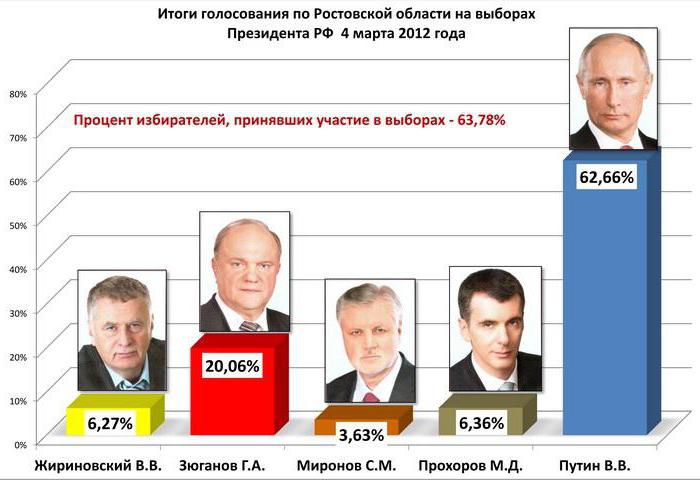
The main requirement here is legality. That is, your actions should not violate the Constitution of the Russian Federation, as well as the laws of the country. In addition, they cannot be dangerous or infringing on the rights of other candidates. Let’s say that you cannot denigrate someone’s honor and dignity under any pretext. It is illegal. Sometimes an election campaign that violates all the foundations of the country entails the disqualification of a participant.
It's no secret that various election programs will be shown and published in the media. A candidate for the position of President of the Russian Federation has every right to choose which sources of information to use. Moreover, their number is not limited. And the Federation Council, in turn, guarantees all participants equal rights and access to the media. That is, in elections, everyone is initially equal. And no one has any advantages. This means that we can hope for the fairness of the process.
Voters
Voters require special attention. They play an important role in elections. And, oddly enough, they are also subject to certain requirements for participation. Fortunately, there are significantly fewer of them than among the candidates for the post of head of state. What restrictions apply according to the law “On the elections of the President of the Russian Federation”?
To begin with, this is the fact that only an adult citizen of Russia has the right to participate in the process. Such a person can come and cast his vote in favor of one or another candidate on the appointed day. True, an important point is that the voter must also be recognized as legally competent. That is, adequate. Incompetent citizens cannot participate in elections even as voters.
Pay attention to one more small feature. A Russian citizen who comes to the polls has only one vote. And it can only be given in favor of one candidate for the post of head of state. This approach guarantees an equal and legitimate contest in the election process. Therefore, voters should think carefully before casting their vote to one or another participant.
Moreover, participation in the process is an individual decision. Every adult capable citizen has the right to vote in presidential elections of the Russian Federation. But this process is not forced. If desired, a voter can simply not show up to vote. Yes, it's not very patriotic, but no one is forcing you to participate. And there is no punishment for absence from elections.
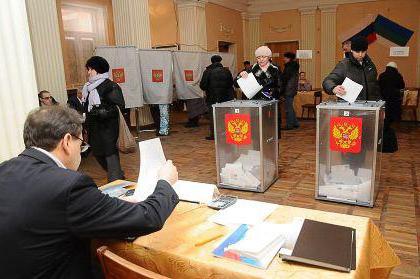
Election Day
So, the nomination of candidates, the requirements for them, as well as the limitations and possibilities of voters are already clear. Accordingly, there is also a certain idea of how elections are held. But the law “On Elections” does not end there. It provides many more features of the process.
For example, in the matter of setting an election day. The decision is made by the country's Federation Council. With all this, it must be issued no earlier than 100 days before the elections, but no later than 90. Afterwards, the data must be made public. According to modern legislation, the Federation Council will have no more than 5 days from the moment the decision is made. So take this factor into account.
How is the election day selected? This is the second Sunday of the month in which this process was previously carried out. These are the rules that are spelled out in the Federal Law “On the Election of the President of the Russian Federation.”
Procedure for presidential elections in the Russian Federation
Participation of state authorities, local self-government bodies, management bodies of organizations of all forms of ownership, institutions, voting members of election commissions in the collection of voter signatures is not allowed.
The Central Election Commission of the Russian Federation, no later than 10 days after receiving the documents necessary for registration of a candidate, is obliged to make a decision to register the candidate or a reasoned decision to refuse his registration.
Financing of activities related to the preparation and conduct of the presidential elections of the Russian Federation is carried out from the federal budget. Candidates are also required to create their own campaign funds to finance their election campaign.
Voting takes place from 8 a.m. to 8 p.m. local time. If the territory of the polling station is the place of residence of voters whose working hours coincide with voting time (when working in enterprises with a continuous work cycle or on a rotational basis), by decision of the election commission of a constituent entity of the Russian Federation, the start of voting at this polling station may be postponed to an earlier time , but no more than two hours.
Territorial and precinct election commissions are required to notify voters about the day, time and place of voting no later than 20 days before voting day through the media or other means.
The precinct election commission is obliged to provide the opportunity to participate in voting for voters who have the right to be included or included in the voter list at a given polling station and cannot, for good reasons (due to health, disability), independently arrive at the polling station.
Ballots are issued to voters included in the voter list upon presentation of a passport or a document replacing a citizen’s passport.
Voting is carried out by the voter entering on the ballot paper any sign in the square relating to the candidate in whose favor the choice was made.
A registered candidate who received more than half of the votes of voters who took part in the voting is considered elected. The number of voters who took part in the voting is determined by the number of ballot papers of the established form found in the ballot boxes.
The minimum threshold for voter turnout was abolished by the Federal Law of December 5, 2006 “On Amendments to the Federal Law “On Basic Guarantees of Electoral Rights and the Right to Participate in a Referendum of Citizens of the Russian Federation” and the Civil Procedure Code of the Russian Federation.” Previously, in order for elections to be recognized as valid, 50 percent or more of voters had to take part in them.
If more than two registered candidates were included on the ballot and none of them was elected to the position of President of the Russian Federation based on the results of the general elections, the Central Election Commission schedules a repeat vote in the election of the President of the Russian Federation for the two registered candidates who received the largest number of votes. A repeat vote is held 21 days after the voting day for the general elections.
If, before the re-vote, one of the registered candidates for whom a re-vote is to be held withdraws his candidacy or drops out due to other circumstances, his place, by decision of the Central Election Commission of the Russian Federation, is transferred to the next registered candidate by the number of votes received after the candidates for whom a re-vote was initially scheduled .
Based on the results of the repeat voting, the registered candidate who received a greater number of votes from voters who took part in the voting in relation to the number of votes cast for another registered candidate is considered elected to the position of President of the Russian Federation.
A repeat vote may be held for one candidate if, after the departure of registered candidates, only one registered candidate remains. In this case, a registered candidate is considered elected to the position of President of the Russian Federation if he received at least 50 percent of the votes of voters who took part in the voting.
If the presidential election is declared invalid or invalid, or if on the day of the re-vote both registered candidates for whom a re-vote was scheduled withdrew their candidacies or dropped out due to other circumstances, or if during the re-vote not a single registered candidate was elected to the position of President of the Russian Federation , The Federation Council calls repeat presidential elections.
Voting in repeated presidential elections is held no later than four months from the day of voting in the initial elections or no later than four months from the day the elections were declared invalid or invalid.
When holding repeat elections of the President of the Russian Federation, those candidates whose actions (inactions) served (served) as a basis for recognizing the general elections or elections during a repeat vote as invalid cannot be nominated again as candidates.
The elected President of the Russian Federation takes office upon the expiration of six years from the date of assumption of office by the President of the Russian Federation elected in the previous elections, and in the event of early elections, as well as if by the day of expiration of six years from the date of assumption of office by the President elected in previous elections, repeat elections are scheduled - on the thirtieth day from the date of official publication by the Central Election Commission of the general election results.
Upon taking office, the President of the Russian Federation takes the following oath to the people: “When exercising the powers of the President of the Russian Federation, I swear to respect and protect the rights and freedoms of man and citizen, to observe and defend the Constitution of the Russian Federation, to protect the sovereignty and independence, security and integrity of the state, to faithfully serve the people "
The oath is taken in a solemn atmosphere in the presence of members of the Federation Council, deputies of the State Duma and judges of the Constitutional Court of the Russian Federation.
The material was prepared based on information from RIA Novosti and open sources
Registration
Another important point is the registration of candidates to participate in our process today. The thing is that this also has its own rules and algorithms. Failure to comply with these leads to the fact that the process itself “breaks down” and the results are considered invalid. In addition, sometimes failure to comply with the rules for registering candidates for the post of head of state of the Russian Federation leads to disqualification. Such cases, fortunately, almost never occur.
The Central Election Commission (hereinafter referred to as CEC) is responsible for registering participants. Those, in turn, after nominating their candidacy must provide a certain list of documents for participation. What can be attributed to them?
The first point is subscription sheets. Each candidate is required to collect at least 2 million voter signatures in support. In this case, authentication is carried out by the Central Election Commission in relation to 20% of the sheets.
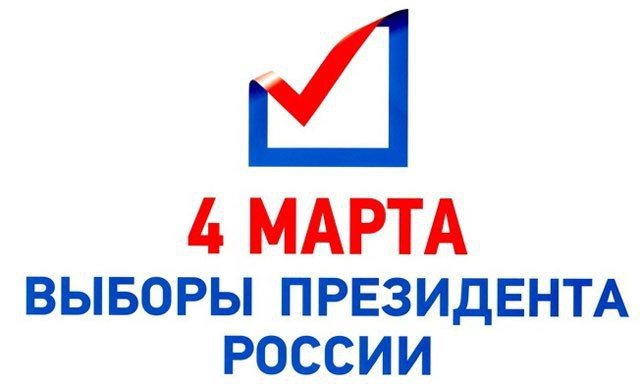
Next, you need a payment document that will confirm that you have paid for the production of subscription sheets. That is, this is a kind of proof of their authenticity.
This is followed by a protocol on collecting voter signatures. There is no way to do without it. You will not be able to run for president if this conclusion is missing. It must be provided along with signature sheets. No exceptions or delays!
One more thing - you will be required to provide the Election Commission with a list of those who collected signatures. Most likely, the authenticity of the information you provide will be verified. Therefore, please note that cheating will result in disqualification.
The presidential election procedure also provides for the provision of personal data and documents confirming compliance with all constitutional requirements for participants in the process. Do not forget that if the information changes, you must immediately bring certificates to the Central Election Commission that could confirm this.
The last thing you will need is a personal financial statement. It’s also impossible to do without it. This is all. Now you can submit the above list of documents to the Election Commission, and then just wait. The commission will have 10 days from the date of receipt of the papers to either register your candidacy or refuse this process. But then there must be a justification for actions. Nobody has the right to hide them. As soon as all candidates are registered, voting places (in each subject they are distributed by district) are determined, you can wait for election day.
